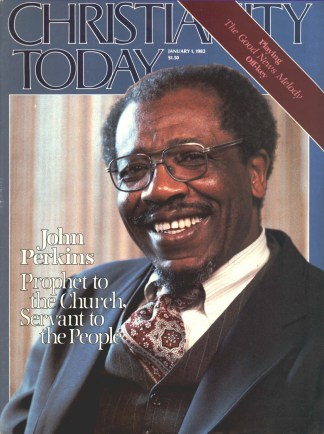The next time you feel compelled to study the history of the calendar, don’t. Instead, jump into a cold shower, or start doing your income tax in Roman numerals. Why clutter up your mind with embolismic years, the metanomic cycle, sansculottides, and intercalary days? And avoid those incendiary words “Julian” and “Gregorian” lest they plunge you into hopeless depression.
It all goes back to the fact that Pope Gregory wanted his name, and not Julian’s, on the calendar. So, Gregory made January 1 New Year’s Day, and promoted October, November, and December from the eighth, ninth, and tenth spots into the tenth, eleventh, and twelfth spots. He obviously did not know his Latin too well or he would have changed their names as well.
This change didn’t go over too successfully with some nations. In fact, England didn’t accept it until 1752. When they did make the change, the people lost 11 days. I mean, overnight the date jumped from September 2 to September 14! As a result, we’ve all been behind schedule ever since. Suppose you were planning to get married on September 10, or suppose the Rapture had been scheduled for September 13? That’s one for Hal Lindsey to think about while he is counting his royalties.
The French made even more of a mess out of the calendar. After the Revolution, they adopted a new kind of calendar that was a lulu. They planned 12 months of 30 days each, but the weeks were 10 days long. The extra five days were smuggled into September and called “Festival Days,” dedicated (I kid you not) to Virtue, Genius, Labor, Opinion, and Rewards. Fine way to spend a day off. Then they asked a famous poet to rename the months and give them some aesthetic value. He named them such things as Mist, Frost, Snow, Wind, Blossom, and so on. Imagine telling somebody you were born on the fifth of Blossom!
Well, fortunately, that didn’t last. Napoleon switched everybody back to the Gregorian calendar, which may well be the only good thing he ever did. He couldn’t tolerate those 10-day weeks, and all the meterologists in France protested the names of the months. The poet who had named them clung tenaciously to his revised calendar, but poets never know what day it is anyway.
Calendars are important to the Lord’s work. Every school, radio program, and mission board sends one out to its “friends.” So do many insurance agencies and funeral homes. Even with all these calendars around, I still have a hard time meeting my deadlines. Maybe I should consult the one from the funeral home more often.
I doubt that Jesus carried a calendar, but he still managed to live on the schedule his Father had set for him. We today have calendars and watches and clocks of all kinds, and still manage to be too busy to do the Father’s will. I’m sure he often quoted Deuteronomy 33:25 to himself and found strength for the day. Anybody can live a day at a time, which is the sermon every calendar preaches.
Well, anyway, Happy New Year—a day at a time.
EUTYCHUS X
Too Close to See
Sometimes I wonder if the scientifically disciplined mind, theistic or nontheistic, has eyes so close to the problems at hand as not to see their magnitudes. This comes from reading about the debate between Duane Gish and Russell Doolittle concerning creation and evolution [News, Nov. 20].
I conclude that God’s ways of creating this mysterious universe are so far beyond human comprehension that biblical authors—humanly speaking—and modern scientists ought to behold in silent awe and wonder before they begin to dogmatically judge one way or another.
DONALD E. KOHLSTAEDT
Spokane, Wash.
Compassionate Appeal
Two comments on “A Tribute in Praise of Pastors” [Nov. 20]: To the author, a return song line: “Wish you were here”; to the subject: what a deep and compassionate appeal to all of us who preach to be exactly the kind of pastor she describes. I am determined …
REV. GEORGE C. WESTEFELDT
Zion Congregational Church
Lind, Wash.
Misunderstood
I am responding to your editorial, “The WCC Finances Violence to Combat Racism” [Nov. 20]. It is obvious from its tone that you do not appreciate or really understand the World Council and the denominations “for whom it purports to speak.”
The water is not shallow at all where the church enters the work for social justice to serve the needs of our neighbor. I suggest you write to someone in the deeps. You might gain some new insights as to what was done with the money sent to Zimbabwe and now to Namibia for the refugee camps. You might be enlightened to know that 60 percent of the citizens of Namibia are Lutheran Christians. I don’t believe the United States is 60 percent Christian.
The concerns are about how to feed our enemy and our neighbor. My New Testament talks about that. I cannot imagine Christ discouraging any group that seeks to do that.
CHARLES V. BERGSTROM
Lutheran Council in the U.S.A.
Washington, D.C.
Deflating Pastoral Counseling
I was surprised at some of Dr. Ockenga’s comments [“Harold J. Ockenga: Chairman of the Board,” Nov. 6]. His deflation of the pastoral counseling ministry seems opposed to scriptural teaching.
Love is the basis of all fruitful Christian ministry as Paul tells us in 1 Corinthians 13. The pastor (and every other Christian) who tries to preach without manifesting love in such concrete ways as close interpersonal giving is setting out on a difficult path for having a mature, effective ministry.
TERRI WILLIAMS
Portland, Oreg.
With all due respect to Dr. Ockenga for his insights, service, and contributions, I am concerned about his comments regarding pastoral counseling. A balanced approach, combining strong, relevant, biblical preaching with skilled pastoral counseling, offers the greatest potential for facilitating the spiritual well-being and maturity of God’s children.
JOHN SHULTZ
Ashland Theological Seminary
Ashland, Ohio
“Para-Congregation”
If I were a dedicated Christian who took my whole view of independent mission boards from the article “Parachurch Proliferation: The Frontier Spirit Caught in Traffic” [Nov. 6], I probably wouldn’t want to support those agencies that are doing the most to evangelize the world today. The term “parachurch organization” itself is a misnomer. We are not alongside the church any more than the apostle Paul was. We are as much a part of the church as any local congregation! Perhaps the term “paracongregation” ministry would be more accurate, but hardly descriptive. By virtue of that term, every denominational work should be considered a “parachurch organization.”
I agree, no thoughtful Christian should make it a policy of answering distress appeals if the organization they are supporting sends them out on a regular basis. This sort of appeal corrupts the integrity of otherwise good organizations, and makes the hearts of donors calloused to real needs.
It is important to support your local church and any ministry that can be done by the local church first. After that you give to independent mission boards and groups on the basis of what you want to see accomplished in the world.
MOISHE ROSEN
Jews for Jesus
San Francisco, Calif.
This article probes the roots of the parachurch problem. Parachurch ministries do a lot of good. But wherein they deviate from the biblical norm they produce tension. Let us get back into the church and honor Christ’s body instead of exploiting it.
REV. J. W. JEPSON
Assembly of God
Oregon City, Oreg.
Concerned Responses
In response to certain comments made by Jerry Falwell in his interview, “The Lone Ranger of American Fundamentalism” [Sept. 4], I am a Jewish-born Israeli citizen, living in Israel since 1953, a follower of Jesus Christ and copastor of an indigenous congregation of Israeli Christians. It is true that Jews suffered in the past at the hand of so-called Christians, but can that be construed justification for Christians suffering at the hands of the Jewish people today? I would have thought it should rather be a lesson to us all to safeguard each other’s liberties, not to deny them!
I would like to know where Dr. Falwell has preached—the streets in Israel? to Jews anywhere in Israel? I am confident that had he attempted to do anything of the sort he would have “had problems.” I and many of my Jewish fellows in the faith testify to this from personal experience. The issue seems not so much the extent to which he is or is not subject to harassment in Israel, but rather how Israel as a state treats its small but faithful Jewish Christian minority.
I am confident Dr. Falwell does not mean that Israel can ever be safe so long as it persecutes—or allows persecution of—its minorities, let alone the fact that Israel’s security is at least in some way related to its attitude to Jesus Christ. America’s greatness is due to the fact that “there has been absolute freedom to preach whatever religious conviction one might have, without impinging on the liberties and freedom of others … ‘living by God’s principles promotes a nation to greatness; violating God’s principles brings a nation to shame.’ ” Can this be true of America while untrue, or irrelevent, in relation to Israel?
REV. BARUCH MOAZ
Rishon, LeTsion, Israel










